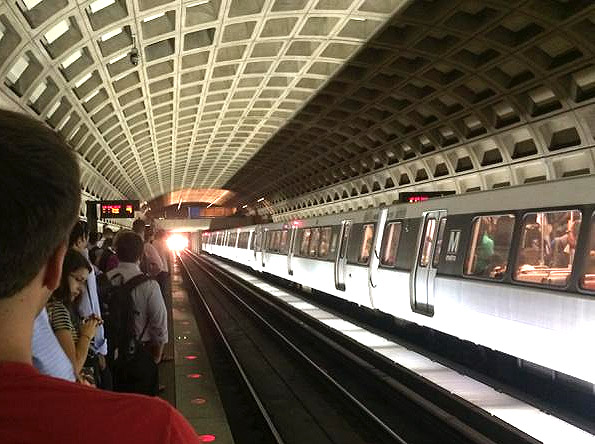WASHINGTON — Metro typically increases fares every two years, and with 2016 approaching, the conversation has begun on whether that will happen again.
Metro would have a tough time selling a fare hike to riders after the deadly smoke incident at L’Enfant Plaza, a scathing Federal Transit Administration report on the agency’s safety and finances, and a derailment outside the Smithsonian station that resulted in the resignation of Metro’s chief safety officer.
“There is no desire to increase fares or adjust service,” said Jack Requa, Metro’s interim general manager. “So we’re going to do everything that we can to reduce expenses within the organization — do everything we can to avoid fare increases and service adjustments.”
But avoiding a fare increase could be a challenge. Metro ridership remains flat, which means fare revenue isn’t growing. For fiscal 2015, Metro budgeted for 223 million train passengers providing $672 million in fare revenue. In the end, only 206 million passengers rode Metrorail and provided $627 million in fare revenue. Metro also saw $10 million less in Metrobus revenue than it budgeted.
At the same time, expenses went up about 4 percent in fiscal 2015. Metro reports that labor costs account for about 70 percent of the growing expenses. Cost of living adjustments, annual pay increases, pensions and health benefits are all increasing. The new Silver Line means more revenue and more expenses.
Fare hikes would be one way to close the gap between the flat revenues and increasing expenses. But it is already shaping up to be a tough fight for Metro.
“We do not support fare increases or service cuts,” said D.C. Councilman Jack Evans. “I think one of the factors that is driving people away from this system is that it’s getting too expensive.”
Arlington board member Mary Hynes agreed that raising fares too high can cause people to avoid riding Metro, especially since Congress cut the federal transit benefits nearly in half a few years ago.
Nevertheless, she doesn’t take the same position as Evans.
“Mr. Evans has the great advantage of having every tax tool at his disposal,” Hynes said. “We in Virginia don’t have that luxury.”
She pointed out that there are only so many ways that Metro can raise the money it needs to run service.
“You raise revenue,” Hynes said. “You cut service. You bend the curve on costs. Those are the choices. There aren’t any other choices.”
Metro’s general manager typically unveils a proposed budget in December with various options to solve the budget woes; the board then takes five to six months debating, negotiating and deciding what to keep and what to remove from the final budget.






